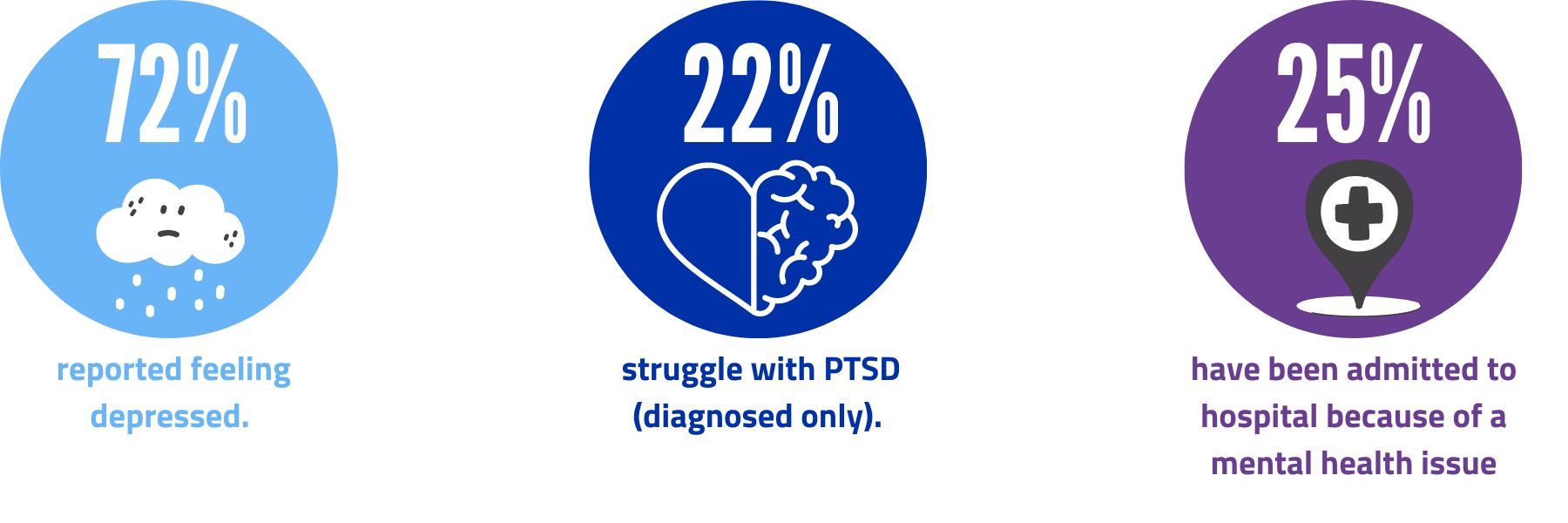Complex needs are at the heart of everything we do here at The Connection.
They affect over 70% of people sleeping rough in London, including many of those we support.
At The Connection, we recognise the challenges faced by people with complex needs and are committed to providing a supportive and effective approach to help them find a pathway out of homelessness. By understanding the issues people are facing on the streets (or that caused them to begin sleeping rough) we can all do our bit to end rough sleeping for good.
What are complex needs?
There isn’t a single definition for complex needs, but we view them as anything that affects a person’s behaviour, mental or physical health, and/or position in society, making it difficult to access traditional support routes. These needs often intertwine, creating a unique set of challenges for each individual.
Our team takes a person-centred approach, taking the time to understand each person’s situation and needs. This allows us to develop a tailored support plan that addresses the root causes of their homelessness, not just the immediate issue of finding a place to stay.
The cycle of complex needs
Many people also struggle with multiple complex needs which can impact on each other and make recovery difficult.
For example, someone may begin sleeping rough after illness leaves them unable to work and pay rent. This illness may cause intense pain but because a person is sleeping rough they may be unable to, embarrassed or confused about how to seek medical support.
Instead, they may start taking illegal substances as they are easier to access to the streets and can relieve pain quickly. Now this person would be dealing with homelessness, illness and addiction, all of which are causing each other in turn.
As you can imagine, this can get complicated and worsen quickly.
This is common in the people we support and many have struggled to find support services which can cater to all their needs effectively.
We understand the trauma associated with homelessness and the importance of providing a supportive environment. That’s why we take a trauma-informed, wraparound approach. This means we go beyond simply finding someone a place to live.
We work with them to address the underlying causes of their homelessness, such as mental health issues, addiction, or immigration challenges. This way, we can look at a person’s situation on an individual basis to address the root causes of their homelessness and figure out what’s preventing them from recovery beyond housing.
Types of complex needs
Poor mental and/or physical health, addiction and immigration status are all common support needs we see in our centre. When this is considered with a person’s experiences of homelessness, planning suitable support can become complex. These needs can vary greatly from person to person, change over time and interact with each other.
Below are a few examples but they do not affect everyone and won’t affect people equally.
Mental health
Addiction
Migration status
We’re here to help
We understand that people with complex needs require additional support. That’s why we offer a range of specialist services tailored to meet individual needs.
Our approach is flexible, and we’re always willing to think outside the box to find solutions that work for each person we support.
Together, we can end rough sleeping. By recognising the complexities of homelessness and providing a supportive and holistic approach, we can help people find a pathway back to a stable and fulfilling life.
This is just the beginning of our conversation about homelessness and complex needs. We encourage you to explore our website to learn more about our services and how you can get involved in supporting people experiencing homelessness.
Join The Connection Community to stay up-to-date on our work:


